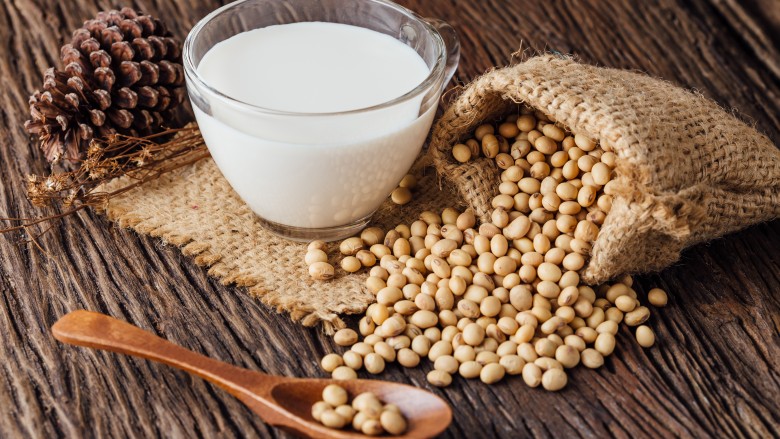What Makes Roasted Soybeans So Popular?
Looking for a crunchy snack that fuels your body and satisfies your cravings? Roasted soybeans are becoming a go-to option for health-conscious snackers. With high protein, heart-friendly nutrients, and a satisfying crunch, they’re more than just a tasty treat—they’re a smart choice for anyone focused on wellness.
If you’ve ever asked, “Are roasted soybeans healthy?” or wondered if they could help with weight loss or muscle gain, this guide breaks it down in the simplest terms—perfect for readers of any age.
Let’s explore the roasted soybeans nutrition facts, discover their benefits, and learn how to enjoy them every day.
What Are Roasted Soybeans?
Roasted soybeans are whole soybeans cooked at high heat until crispy. There are two types:
- Dry roasted (no added oil)
- Oil roasted (lightly coated in oil)
They’re gaining popularity across the U.S., Australia, and beyond thanks to their impressive nutrition profile. These high-protein plant-based snacks are easy to store, pack, and munch on anytime.
Roasted Soybeans Nutrition Facts (Per 100g)
Here’s what you’ll find in 100g of dry roasted soybeans:
- Calories: 450
- Protein: 40g
- Carbohydrates: 30g (including 15g fiber)
- Fat: 20g (mostly heart-healthy unsaturated fats)
- Iron: 6.4 mg
- Calcium: 200 mg
- Magnesium: 250 mg
- Folate: 375 mcg
- Potassium: 1900 mg
The roasted soybeans protein content is one of the highest among plant based snacks, making them ideal for boosting energy and supporting overall health.
Health Benefits of Roasted Soybeans
1. Soy Protein for Muscle Gain
With 40g of protein per 100g, roasted soybeans support muscle repair and strength building. They’re a great source of soy protein for muscle gain, especially for people avoiding meat or dairy.
2. Roasted Soybeans for Weight Loss
Thanks to their high protein and fiber, roasted soybeans keep you full longer, help control appetite, and reduce snacking on junk food.
3. Roasted Soybeans and Heart Health
The isoflavones and healthy fats in soybeans may help lower bad cholesterol (LDL) and improve heart function. Research shows consistent soy intake supports cardiovascular well-being.
4. Better Digestion & More Energy
The 15g of fiber improves digestion and helps balance blood sugar. Plus, the slow-digesting carbs keep energy levels stable throughout the day.
5. Roasted Soybeans vs Raw Soybeans
Raw soybeans contain anti-nutrients that may block nutrient absorption. Roasting reduces these, making nutrients easier to digest and absorb. So yes, roasted soybeans are the better option.
6. Are Roasted Soybeans Healthy?
Absolutely. They’re nutrient-dense, naturally gluten-free, and suitable for a wide range of diets, including plant-based, low-carb, and high-protein eating plans.
Who Should Eat Roasted Soybeans?
There are great benefits Roasted Soybeans of for nearly everyone:
- Kids: Fun and crunchy snack that’s also rich in nutrients
- Teens and Athletes: Great for muscle growth and energy
- Adults: Perfect for weight management and heart health
- Seniors: Support strong bones and digestion
⚠️ Avoid if you have a soy allergy or consult a doctor if you have thyroid issues. Choose organic or non-GMO soybeans for best results.
Dry Roasted Soybeans Calories and Serving Ideas
A 28g (1 oz) serving gives you:
- Calories: ~126
- Protein: ~11g
- Fiber: ~4g
Snack ideas using roasted soybeans:
- Add to trail mix with nuts and dried fruit
- Sprinkle on salads or soups for a crunch
- Mix into yogurt bowls
- Enjoy as a grab-and-go snack
Roasted Soybeans vs Other Snacks
| Snack | Protein | Fiber | Calories |
|---|---|---|---|
| Roasted Soybeans | 40g | 15g | 450 |
| Almonds | 21g | 12g | 579 |
| Roasted Chickpeas | 19g | 13g | 460 |
| Potato Chips | 7g | 3g | 540 |
Compared to most snacks, roasted soybeans offer a better balance of protein, fiber, and calories—making them one of the most efficient soy snacks for nutrition.
How to Choose or Make the Best Roasted Soybeans
Buy smart:
- Look for dry roasted soybeans with no added sugar or oils
- Check for low sodium options
- Choose non-GMO or organic labels
Make your own:
- Soak dry soybeans overnight
- Boil until tender
- Roast at 375°F for 35–40 minutes
- Lightly season with herbs or sea salt
FAQs About Roasted Soybeans
Q: Are roasted soybeans a complete protein?
Yes! They contain all nine essential amino acids.
Q: Can I eat roasted soybeans every day?
Yes, just keep portions moderate (1–2 ounces daily).
Q: Are they gluten-free and allergy-friendly?
They are gluten-free but should be avoided if you have a soy allergy.
Q: Are roasted soybeans good for weight loss?
Yes. Their high protein and fiber content helps reduce hunger.
Q: What makes them better than raw soybeans?
Roasting improves digestion and flavor while removing anti-nutrients.
Conclusion: A Crunchy Snack That Works for You
Roasted soybeans check all the boxes: they’re high in protein, fiber-rich, heart-healthy, and easy to enjoy anytime. If you’re looking for a smarter snack that supports your goals—whether that’s weight loss, muscle gain, or simply eating better—this is it.
Try them today. A handful of roasted soybeans might be the crunch your body has been waiting for.
👉 Want more snack-smart, science-backed tips? Keep coming back for more🌿
Read more about 9 Best Health Benefits of Avocado Oil
How NSDR (Non-Sleep Deep Rest) Boosts Mental Health
Mediterranean Diet & Anti-Aging
Benefits of Fasting Backed by Science
Unhealthiest Junk Foods to Avoid
Use to support the “Roasted Soybeans Nutrition Facts (Per 100g)” section.
Harvard T.H. Chan School of Public Health – The Nutrition Source: Soy
American Heart Association – Soy Protein and Cardiovascular Health
Cleveland Clinic – Soy: Is It Good or Bad for You?


One thought on “Roasted Soybeans Nutrition Facts: A Delicious Way to Boost Your Health”